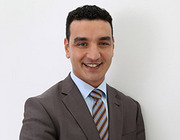The 2014 Winter Olympics are just around the corner, and Sochi is getting ready for the big event. A few days before the first starting gun sounds, everyone in the Russian city on the Black Sea is focused on sports. We, however, are taking a closer look at the country located in northeast Eurasia that will host the games. In this special feature, we present facts and figures from various projects being carried out at the Bertelsmann Stiftung. We begin with "Did you know that…?" The information is based on the findings from a study done for the Sustainable Governance Indicators (SGI) that examined various policy areas in the BRICS countries.
Did you know that …
… government-driven policies in the areas of education and innovation have a long tradition in Russia?
… that Russia's system of innovation has been in a state of upheaval since the collapse of the Soviet Union? Even though Russia has spent considerable sums on investment, thereby preventing the worst, its research institutes are structurally outdated, with some 25 percent of them older than 10 years and 12.3 percent older than 20 years.
… that it was Russia that brought the heads of state and government of the other BRICS nations together for the first time at a summit in Yekaterinburg in 2009? Since then, a different country has hosted the summit each year. The next summit is planned for this summer in Brazil.
… that Russia is the largest producer of natural gas in the world?
… that the country’s average economic growth of 5.9 percent between 2000 and 2009 was largely based on the high price of fossil fuels (gas, oil and coal) during that time? Falling demand for natural resources in the wake of the economic and financial crisis let to a slump in Russia’s economic performance in 2009, from which the country is gradually recovering.
… that medium- and low-level technologies continue to make up the bulk of Russia's economy, at 28 and 23 percent, respectively, while high-tech activities account for less than 10 percent?
… that Russia is adapting its higher education sector in accordance with the Bologna Process? The undertaking, however, has been complicated and slow, not least because of the corruption prevalent throughout the country. Corruption has increased in the educational sector in particular, for example, in the form of informal payments to school administrators and university instructors.
… that Russia is a signatory to a number of international agreements, such as the UN Universal Declaration of Human Rights and the UN Declaration of the Rights of the Child, which guarantee basic rights and freedoms in the area of education? As a result, equal access to education has become more common throughout the country, and the educational system now also takes the special needs of disabled children into account. Yet while the Education Ministry emphasizes the need for non-discriminatory practices and lifelong learning, these goals have only been achieved sporadically at best.
… that research and development is driven mostly by government programs? Overall, 97 percent of R&D in Russia is funded by the state.
… that 70 percent of R&D funding goes to business organizations, while only 25 percent is spent on public-sector research? The businesses receiving funds are often state-owned, and not in private hands as is usually the case in other countries.
… that, in addition to universities and research institutes, academies play an important role in Russia? The country’s academies receive the lion’s share of government funding for research, meaning relatively little is left over for universities and other institutes.
… that Russia's concern for environmental issues and for preserving national resources only began following the collapse of the Soviet Union, when the country underwent a period of major upheaval? In the 1990s, there was a significant increase in the creation of laws and institutions addressing the topic of environmental policy.
… that measures in the area of environmental policy mostly reflect international environmental protection agreements and are largely influenced by the results of the UN Conference on Environment and Development held in Rio de Janeiro in 1992?
… that enforcing environmental protection laws has nonetheless proven difficult? The reason is wide-scale corruption, which makes it possible to circumvent legal requirements.
… that Russia's greatest environmental challenges are air and water pollution, along with wasted natural resources and the enormous amounts of refuse generated throughout the country? Russia is at the bottom of the list of BRICS countries when it comes to environmental factors, often by a large margin.
… that Russia's environmental policy is still closely connected to its economic and financial status? Following the economic crisis of the 1990s, the state increasingly focused on industries that rely on natural resources like coal, oil and wood.
… that issues relating to environmental protection and climate change are rarely found these days on the political agenda? It is impossible to discern any ongoing, sustainable national strategy for combating environmental problems in Russia, since the government rarely publishes official information on efforts to address environmental issues.
… that environmental issues do appear on the political agenda when they promote Russia's growth? Environmental protection requirements are implemented, for example, in order to put pressure on unwanted investors. Moreover, Russia only approves international environmental agreements when the country's industrial sector benefits in some way in return.
… that the Sustainable Governance Indicators put Russia at the top of the list of BRICS countries, followed by China and Brazil, in the areas of education and R&D – and by a wide margin? India and South Africa, conversely, lag the field.
.. that Russia is an important partner for Germany and Europe in the international exchange of knowledge? The Agreement on Scientific-Technological Cooperation (Abkommen über die wissenschaftlich-technische Zusammenarbeit, WTZ), originally signed in 1987, was renewed between Germany and Russia in 2009. In 2005, both countries approved the joint declaration of a German-Russian strategic partnership in education, research and innovation.
About the SGI
The Sustainable Governance Indicators (SGI) make use of international comparisons to analyze political systems and policy outcomes in the world's developed countries. In a special study, the project team examined economic, social and environmental policies along with the areas of education and R&D in the BRICS countries. More information on Russia and other BRICS countries is available at: http://www.sgi-network.org/brics.




